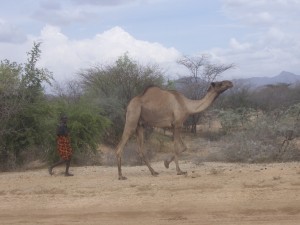Words on Wednesday aims at promoting interesting/fun/exciting publications on topics related to Energy, Resources and the Environment. If you would like to be featured on WoW, please send us a link of the paper, or your own post, ERE.Matters@gmail.com
***
Blog by Sylke Hilberg
Groundwater is a crucial topic in education for sustainable development. Knowledge about groundwater is an indisputable prerequisite for a sustainable use of water as a valuable natural resource. But international studies with students of different ages have shown that the basic hydrogeological concept of groundwater defined as water within porous and permeable rocks is not an established everyday notion. Most popular, however, is the idea of groundwater as a subterranean river or lake. This is what we aimed to change with the help of our interactive multimedia learning program “Zwischen Regenwolke und Wasserhahn” (Between the raincloud and the tap, Unterbruner & Hilberg, 2012) that we developed in an academic cooperation between the faculties of Geology and Science Education/Biology Didactics at the University of Salzburg.
We designed the multimedia learning program on the basis of hydrogeology, conceptual change research and multimedia research. In order to ascertain the effectiveness of the learning program two studies were conducted with Austrian pupils (7th grade) and teacher training students from the fields of biology and geography. Using a quasi-experimental research design, the participants’ conceptions and knowledge regarding groundwater were determined in a pre- and post-test. The results show that groundwater education can be significantly improved by using our multimedia learning program. Both pupils and students, achieved a significant increase in correct groundwater conceptions and knowledge achieved during a one-off session with the multimedia program. The two drawings of a 12-year old boy show the conceptual change by learning with the program.

Left, pre-test: Groundwater as a huge subterranean lake. Right, post-test: Correct drawing of groundwater
The complete program consists of four chapters (Water in the Ground, Water in the Mountains, Water in Pipes, Interesting facts about Water, language: german) and is available free on the internet at www.multimedialernen.at



